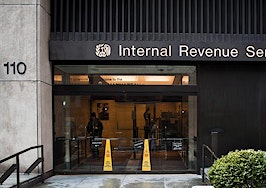This spring, Inman is obsessing over helping you to tune-up your listings business, with actionable insights, the best advice from top agents and hundreds of helpful stories from all over the world. Interested in sharing your advice and insights with us? Reach out to me at matthew@inman.com.
Don’t forget that we’ll also be focusing on how agents and brokerages can all move Faster, Better, Together this July at Inman Connect San Francisco. Not got your ticket yet? Buy it here, and remember that Select members get a $100 discount. Thinking of bringing your team? There are special onsite perks and discounts when you buy those tickets together too. Just contact us to find out more.
The new tax law or 2017 “Tax Cuts and Jobs Act” includes five changes that every real estate agent and broker should know for their serious real estate investor clients.
Because real estate is all about building relationships, your education on these tax changes is a must for 2018 sales. And the more you know about the tax plan changes, the more likely you are to close deals with these high-end clients.
The good news is that most new tax law changes will positively impact your real estate investor clients. And a few changes in the tax code will require some extra planning to avoid paying additional taxes.
So here is what’s changing this year for serious real estate investors:
5 new tax law changes for real estate investors
1. Retention of like-kind exchanges for real estate
This tax incentive is a terrific boon for real estate investors. Like-kind exchanges were eliminated for personal property. Examples include livestock and equipment along with automobile trade-ins. The new law retains the like-kind exchange rule for real estate.
2. Retention of exclusion for sales of residences
There was much debate about whether the holding period for personal residence gain avoidance would increase from two to five years. The two-year holding period out of five years was retained in the new tax law.
A real estate investor can now purchase a residence, fix it up, live in it for two years and rent it for up to three years. And they can sell it for no gain recognized other than some depreciation recapture.
3. Increase in holding period for carried interests
Real estate investors who do private equity deals will see changes. The rule allowing profit from the property to be treated as long-term capital gain is different. Anyone who raises funds from investors to purchase and improve rental property is impacted.
Under the new law, developers must hold the property for at least three years before selling to achieve long-term gain status. The biggest issue is real estate is hot in many locations right now.
Developers have incentives to sell at very low cap rates and high prices. The tax rate will double if they sell before three years is up. And then the share of the gain will be taxed as short-term capital gain.
The holding period for like-kind exchanges did not change. The like-kind exchange holding period remains at one year and a day. So if a developer can do a like-kind exchange on their carried interest, they can push the holding period out to three years. And eventually, they get long-term capital gain rates on their income.
4. Exemption from percentage-of-completion method
This exemption is for taxpayers with less than $25 million of gross receipts. This increase in the availability of the completed-contract method of accounting is a huge benefit for home developers and others with major projects.
The completed contract method allows a developer to defer income until the project is substantially complete instead of recognizing and paying tax throughout the time of the development.
The old law required any developer with $10 million of gross receipts to use the completed contract method to recognize gain. Under the new tax law, this threshold is now $25 million. They can now defer their income until the project is substantially complete as long as the developer’s gross income averages less than $25 million per year.
5. Business loss limitation of $500,000
The new rule says net business losses can only offset $500,000 of other income. These losses include all business income against all business losses. And real estate losses are included. This change is an entirely new limitation on using losses that will impact major real estate investors.
There are opportunities to expense repairs and improvements under the tangible property regulations with increased bonus depreciation. This now includes roofs, HVAC, security and fire systems. Most leveraged real estate investors will show losses for these updates. And these losses can happen even when there is significant cash flow from operations.
Losses can also be used from businesses to offset other income such as income from salaries, interest and dividends. Any excess loss is carried over as a net operating loss. Net operating losses can now only offset 80 percent of taxable income.
Because wages from a business are not considered business income, business owners with losses from real estate and other businesses may want to consider reducing their salaries from businesses. And then they can take more of the income as pass-through income.
Overall, your real estate investor clients can celebrate the Trump Tax Plan. Invest time in understanding the new tax law to close more deals and increase trust with all of your clients.
Tom Wheelwright is the author of “Tax-Free Wealth,” CPA and CEO of ProVision Wealth. You can follow him on Facebook or Twitter.













